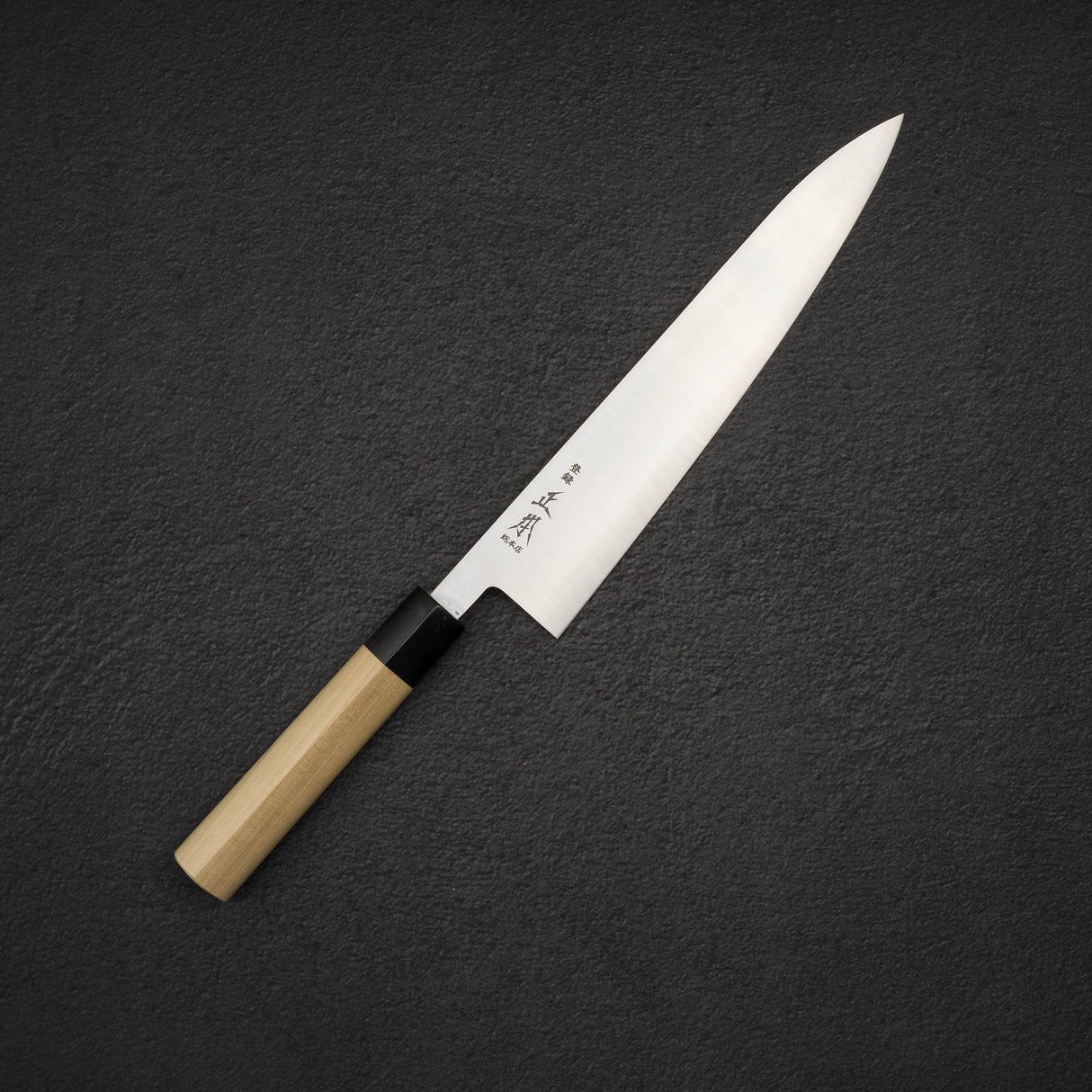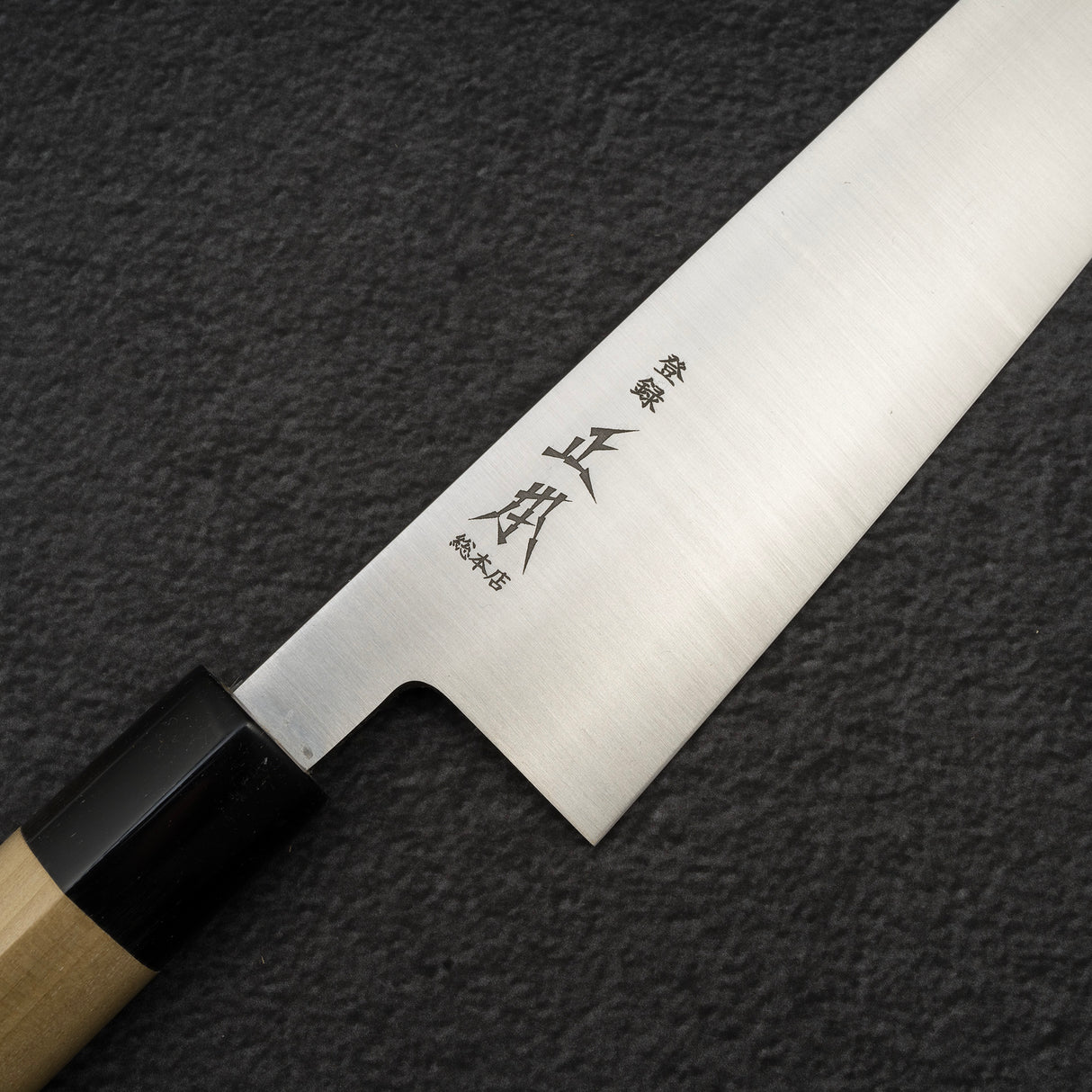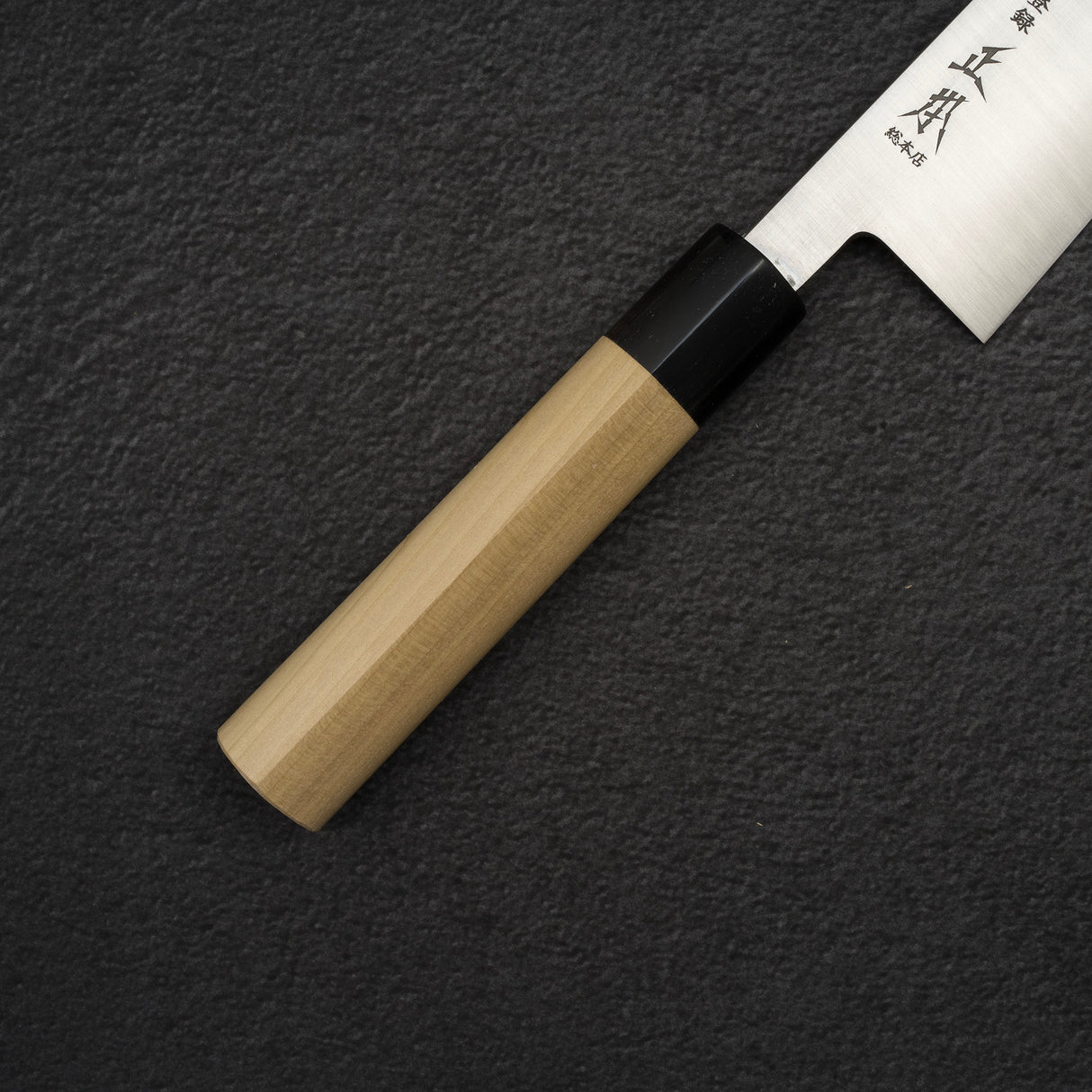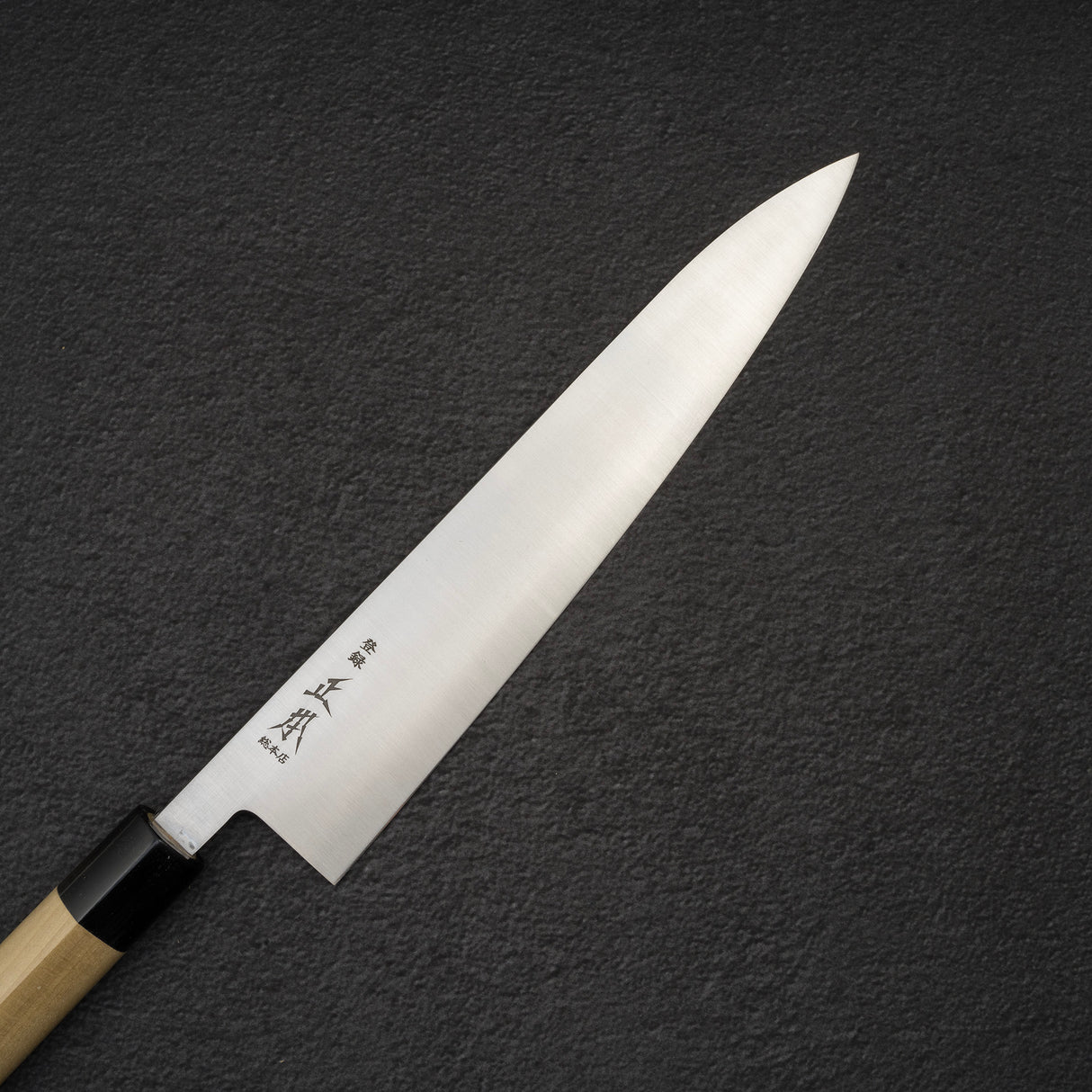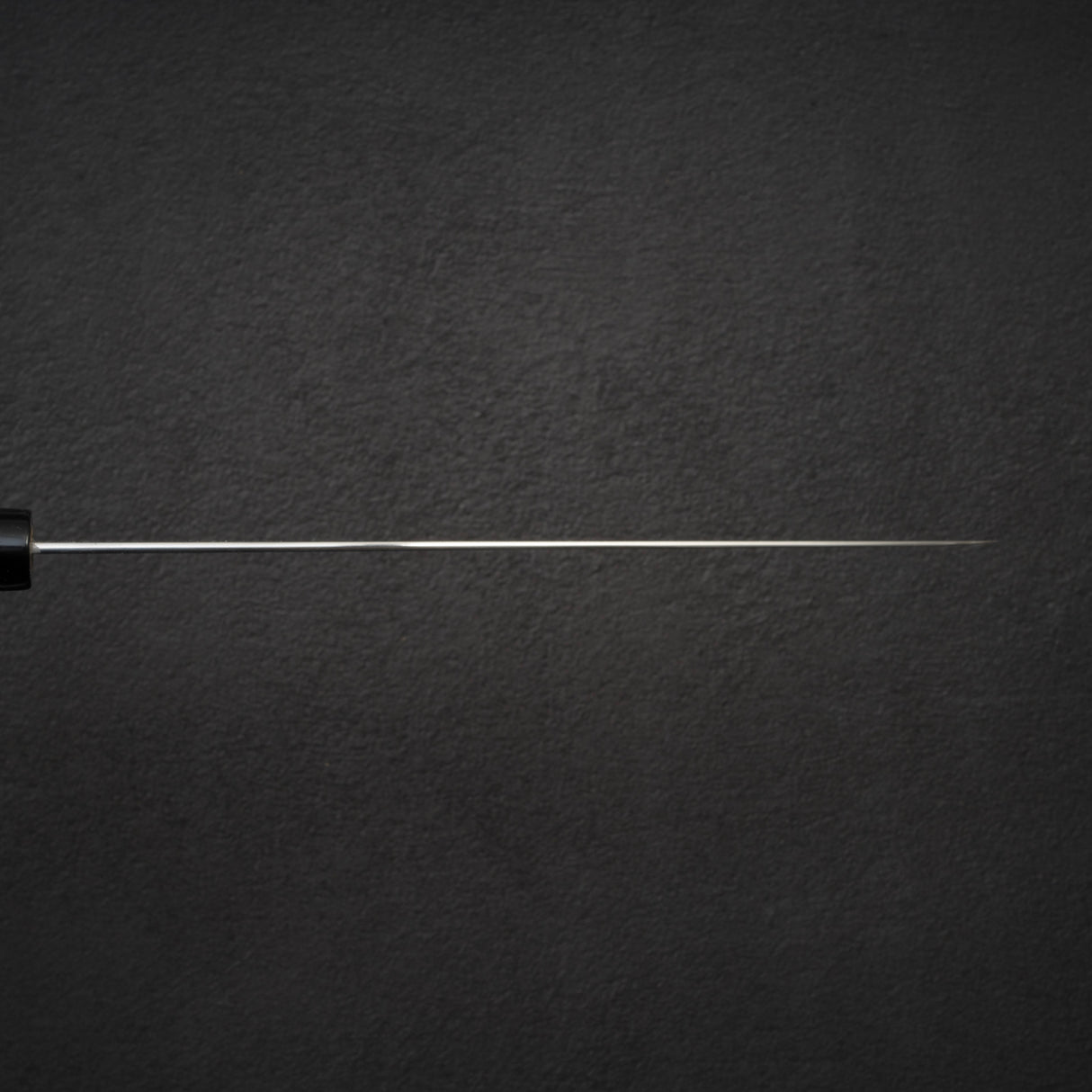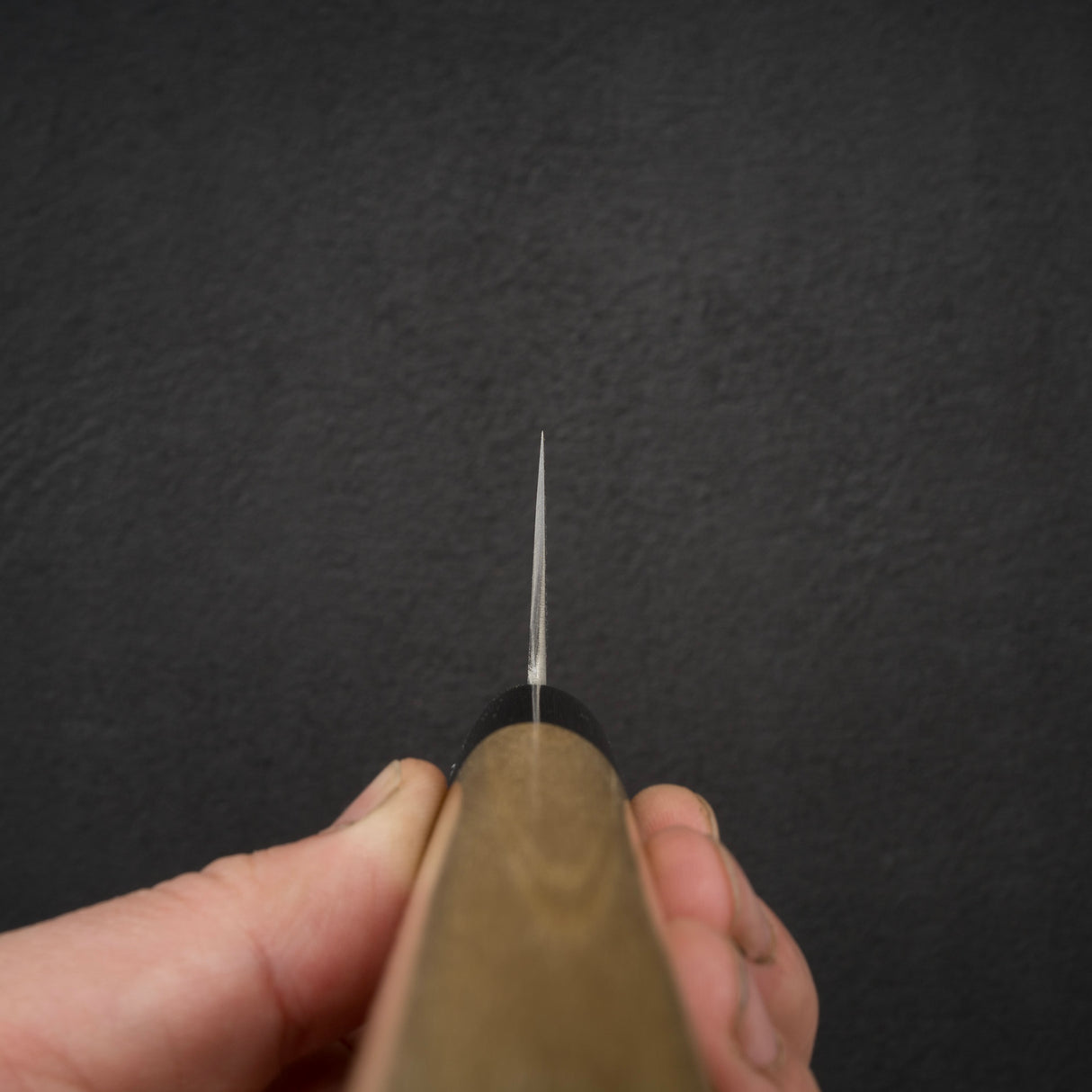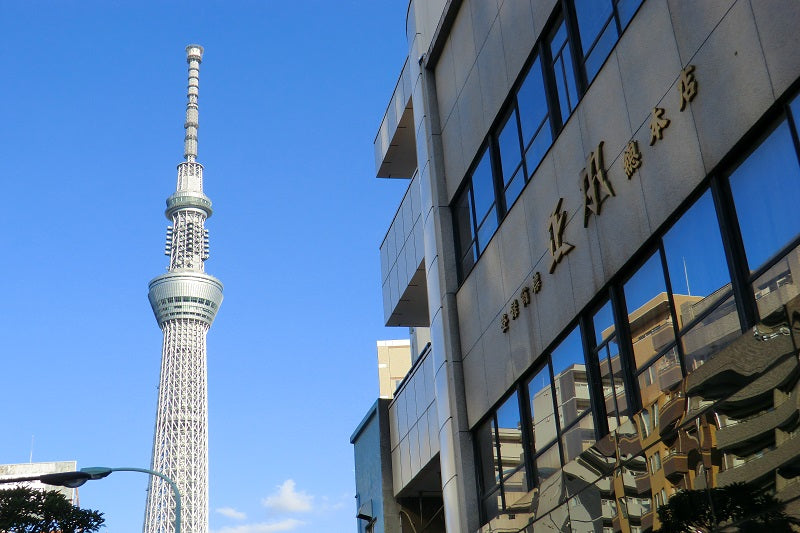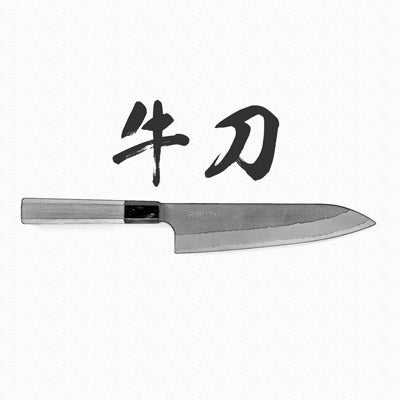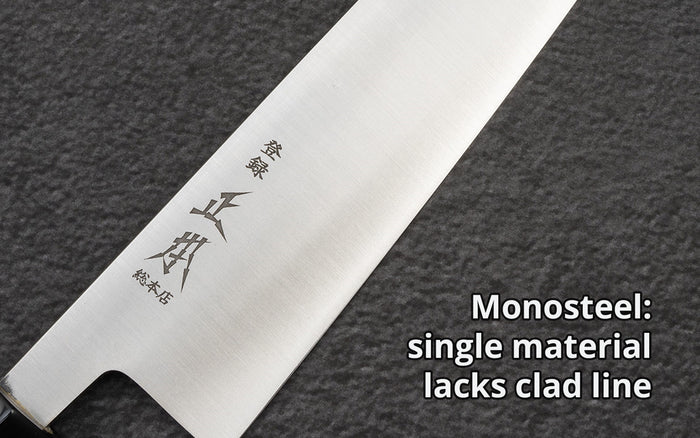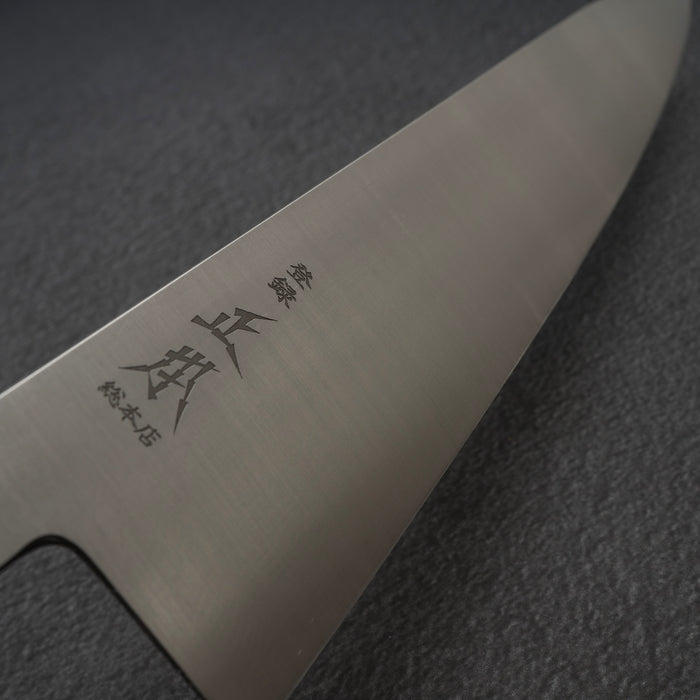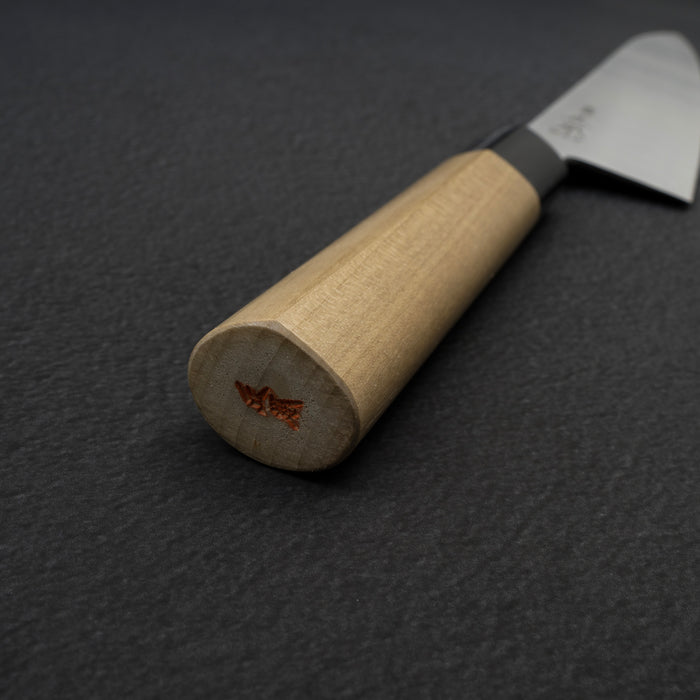Masamoto Sohonten SW Gyuto 240mm SW3124
Masamoto Sohonten SW Gyuto 240mm SW3124 is backordered and will ship as soon as it is back in stock.
Couldn't load pickup availability
K&S Price: AU $719.95* inc. tax , vs:
| Hocho Knife | AU $865.6 | -20.39% |
| Store JCK | AU $828.0 | -15.16% |
* For overseas buyers you pay no GST (10%) and low shipping rate.
Last Update: 2025-04-18T17:05:44Z
Detailed Specifications
| Line | Masamoto SW |
| Profile | Gyuto / Chefs Knife |
| Bevel Type | Double Bevel |
| Weight | 167 g 5.89 oz |
| Edge Length | 251 mm .9.88 inch |
| Heel Height | 50 mm .1.97 inch |
| Width @ Spine | 2.9 mm 0.11 inch |
| Width @ Mid | 2.5 mm 0.1 inch |
| Width @ 1cm from Tip | 0.9 mm 0.04 inch |
| Steel | Swedish Steel | Stainless |
| Blade Construction | Monosteel |
| Hardness (HRC) | 58 - 60 |
| Surface Finish | Migaki |
| Handle | D Shaped Ho Wood Black Horn |
| Region | Tokyo |
| Best for |
|

Video Review
| Pros | Cons |
|
|
|
Care Instruction
- Don't cut hard things! Japanese knives are brittle so bone hacking is a NO NO!
- Wash with neutral detergent after use, and wipe dry;
- Please don't wash knife with dishwasher, it will damage the wood handle;
- Be careful not to leave the knife close to a heat source for a long time;
- It is a lot more dangerous to cut with a blunt knife than a sharp knife!
- It is best to sharpen a Japanese knife regularly on a waterstone.

